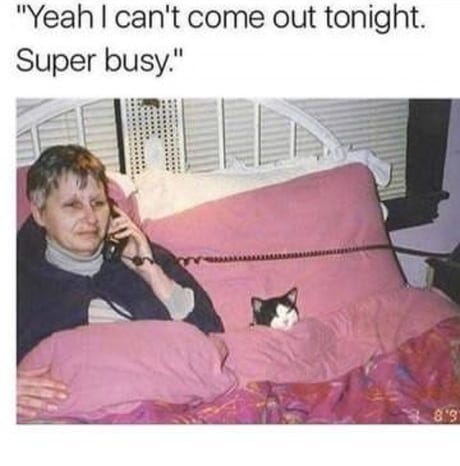QUICK NOTE: I’ll be travelling through Japan from Oct 26 to Dec 3, sending out a daily newsletter as I go. The newsletter will run for only that time, after which I’ll delete the subscriber list.1
For more details and to subscribe, head to Mizu Gohan Ocha.
About a year ago I wrote in a notebook the eventual subject line of this email:
Forget what things mean so you can enjoy what they are
I don’t remember exactly what I was thinking when I wrote it, but I do remember what I was doing: talking to a friend about whether or not it mattered they had yet to see Top Gun. Their stance was it didn’t, and mine was… it did. 😬 Which feels impossible but we all have our moments.
Specifically I have moments where I take the ridiculous side of an argument.
Several months go by. Now I’m talking to another friend about relationships and I drop this phrase into the conversation. It sparks the thought that I’ve said it before, or maybe they tell me I did. Either way, I decided to flip through my notebooks and there it is, huddled between a shopping list and a paragraph-length story about blocking the buttons in an elevator:
Forget what things mean… so you can enjoy what they are…
For most of my life I was obsessed with the meaning of things, and in this way I was perfectly suited to be an English major in the mid-90’s. Pumped full of Foucault and Derrida, weaponized half-knowledge spilling out of my Moleskine, I was the “well, actually” guy on Twitter X before social media existed. Not enough information to actually understand what I was saying, but just enough to be truly, horribly boring about it.
I gleaned what I could from summaries of Barthes and Lacan and then flung it like a deranged rhesus monkey at unsuspecting conversational partners. Think you enjoyed The Matrix? WRONG! You didn’t even understand The Matrix, you structuralist twat.
As an act of kindness to that past me, and in deference to my therapists who widely hinted I needed to, I revisited that time to uncover why in god’s name I was like that.
For starters, I had horrendous social anxiety around not knowing things. I grew up with a negligent level of pop culture knowledge, which, on the battlefield of a school playground, meant I was an outsider waiting to be discovered.
So I learned just enough about a lot of things to reasonably talk about them. Skateboarding. Video games. Music. It didn’t always work. I once told a few older kids in a theatre production that, when asked what I listened to at home, I enjoyed “The Beatles”.
University wouldn’t prove any kinder. Suddenly surrounded by many more people of much wider interests, I doubled down on my pseudo-polymath efforts. As I now knew even less about even more things, I got very good at steering conversations through those ever-narrowing windows.
As anyone who’s ever made an innocuous comment online can attest, conversations that hinge entirely on minutiae are INSUFFERABLE. And yet, even after it became all but untenable to keep up, and even after I learned better ways to communicate, and even after I started comfortably admitting when I hadn’t watched or read or listened to something, I still persisted. I couldn’t help it.
Part of that was patterns, which suck to change. And if that’s all it was, I’d have reported back with confidence: “I got this on wrap. We bustin’ outta this.”
But I did not bust outta this. Because unfortunately I had internalized the idea of conversations being things you could win, duelling with information. Long after I desperately wanted them to end, I was still having interminable conversations where the stakes couldn’t have mattered less.
It was harder for me to let go of the meaning of conversations than a lifelong religious faith.
Within all the terrible problems caused by COVID and it’s subsequent lockdowns rose an interesting sentiment qua counterpoint: people relieved they no longer had to come up with excuses for why they couldn’t go to things. It was remarkably consistent across my social circles.
In the same way it is now undeniably true no one should use a phone to make a phone call, the lockdown established that no one should ever be invited to an event of any kind except in the loosest possible sense. Like most things post 2020, this is best represented by its memes:
Was it a great societal equalizing? Introverts finally having their due? A middle finger to productivity creeping even into our social lives, with its hints that even fun could be optimized?
Some people had the exact opposite experience. The social isolation of lockdowns was devastating, made worse by it being the less acceptable circumstance to voice publicly. You weren’t suffering but if you were, you should suffer quietly.
Dougald Hine covers this, and the crossover between the COVID response and climate crisis, in At Work In The Ruins. Why in some cases are we so willing to give up certain freedoms, and others so reluctant? Part of the answer, I’d argue, is in the meaning we ascribe to certain consequences.
Regardless of which side of our enforced interiority you fell on, it’s likely you spent part of lockdown wondering what socializing even meant. What did it mean to be social now that you couldn’t do it? Who was in your bubble? Where was a safe space? How long should a conversation be?
Who (or more specifically what) are friends?
During a gap in restrictions I managed to switch countries. Now to questions about meaning I could add, what is home? Where was I from? To what did I belong? Who were my people?
[On a trip to Switzerland I stayed at an Airbnb where the owner insisted we meet so she could walk me to her apartment. As we walked she asked me where I was from. I now know this means one of three things: where my parents were from (most likely); where I was born (also likely); where I currently lived (least likely). I told her I was from Canada, and that I currently lived in London. Seeing that this didn’t satisfy her, I said that my mother was from Scotland and my dad from China. On saying “China” a visible sense of relief washed over her. Ah yes, she said. I could tell you had a bit of—and here she pulled at the side of one of her eyes—in you.]
Increasingly, perhaps as a function of age, I’ve cared less about what things might mean and look to engage with them as they “are”. In response to that the universe saw fit to cross my awareness with Donald Hoffman, a cognitive psychologist and the author of The Case Against Reality. It’s exactly what it sounds like.
Hoffman argues, persuasively, that we do not perceive reality as it is, or veridically. Our senses did not evolve for it. Instead, we do a lot of encoding and simplifying to optimize for fitness, which here means the potential of life to create more life. It colors everything we see and smell and hear and by extension, think, including our perception of colors.
So… what to make of this? If what things mean obscures us from enjoying what they are, and what they are is a literal hologram we filter through a baby-making lens, what then for us?
Well, that’s what I plan to find out. If you’ve made it this far, thank you! I suppose you’re the likeliest people to want to keep reading this newsletter, as it shifts to exploring that very question. Given our perceptions are so individually and collectively biased, how should we approach this whole living thing?
From now until I run out of steam, we’ll be asking that question of the things I used to pretend to know a lot about. Music. Food. Friendship. Love. Travel. Shoes? Maybe shoes! Lest the whole thing crumble under the weight of its own self-importance.
Sounds good? Then stay subscribed. Sounds wicked bad? Then feel free to unsubscribe. We’ve had a good run. Or stay subscribed and just don’t read, as 50% of subscribers do. I’m sure Substack could tell me what that means, but I’ll never ask them.
Or you can follow along with Haarlem Shuffle, an intermittent filing of micro stories from my now home town.
Ok, I think that’s it. Thanks again for reading. Hope you enjoy something today you’ve forgotten you didn’t like.
Yes in the audio version I say, “describer”.






I’m appreciating these thoughts. I’m shocked but then again, not surprised at the airbnb lady.
Especially brillant this one Thom ✨